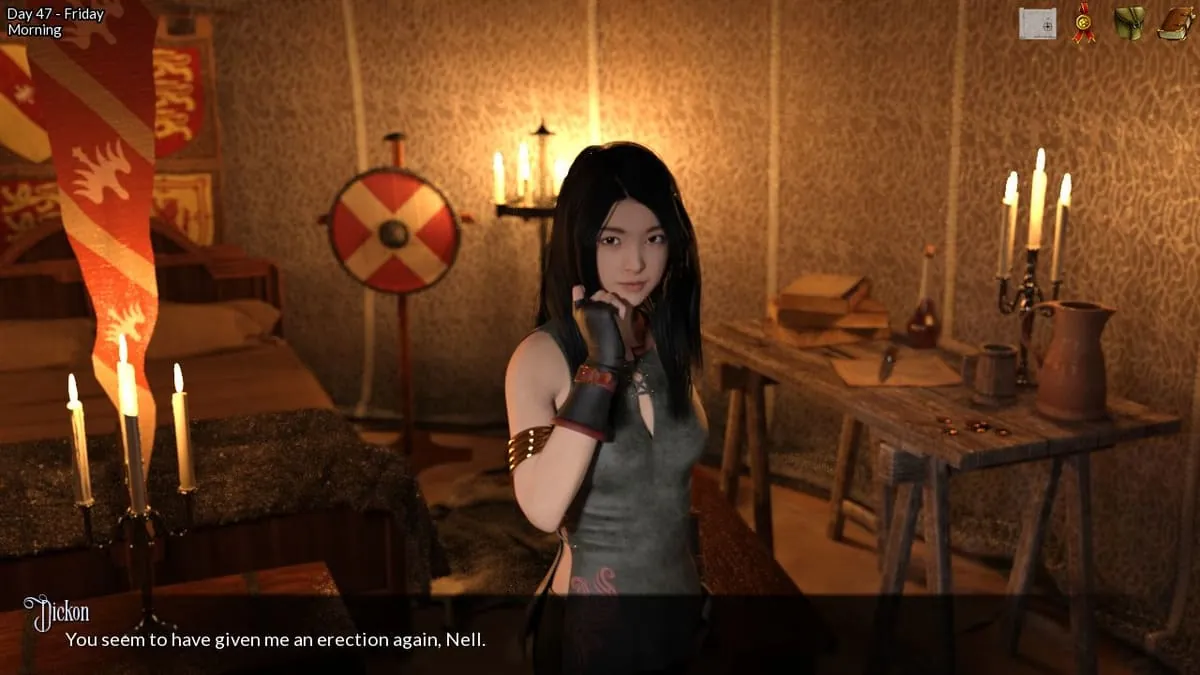
Parental Love
Play Parental Love
Parental Love review
Exploring the emotional journey of parental love in gaming
Parental love is a powerful theme that resonates deeply in storytelling, and games are no exception. Some titles take this concept further, exploring the complexities of family bonds, emotional support, and the challenges of raising others in unique, sometimes unexpected ways. In this article, we’ll dive into a game that stands out for its portrayal of parental love, examining how it shapes the narrative, characters, and player experience. Whether you’re drawn to heartfelt stories or curious about how games handle mature themes, this exploration will offer fresh insights into the world of parental love in gaming.
Understanding Parental Love in the Game
How the game portrays parental love
I’ll never forget the first time a video game made me feel like a real parent. It wasn’t about grand battles or complex puzzles; it was a simple, quiet moment of protecting a virtual child from harm. This is the unique power of exploring parental love in games—it transforms the player from a mere controller of actions into a guardian of a relationship. 🎮❤️
The game we’re discussing masterfully presents this theme not through lengthy cutscenes alone, but through interactive responsibility. You don’t just watch a parent care for their child; you are that caregiver. The portrayal is woven into the very fabric of the gameplay. It’s in the way you must constantly monitor a health meter, the way you choose to respond to a question, and the instinct to put their safety above all else. This active participation makes the emotional connection far deeper than any passive media could achieve. It’s a brilliant example of emotional storytelling games at their finest.
What sets this depiction apart is its authenticity. The love shown isn’t always grand or heroic; it’s often found in the small, mundane tasks. It’s the act of sharing a meager meal, offering a word of encouragement after a nightmare, or simply holding a hand during a frightening walk. These moments build a believable and powerful family bond in gaming that resonates because it feels real. You’re not just playing a character; you’re nurturing a connection, and that is a profoundly human experience.
Key moments that highlight family bonds
The emotional core of this game is built on specific, powerful scenes that cement the family bonds in gaming. These aren’t just plot points; they are emotional turning points that stayed with me long after I put the controller down. 😢✨
One of the most poignant moments occurs during a harsh winter. Resources are scarce, and you are faced with a heart-wrenching choice: do you give the last of the medicine to your sick child or trade it for food to keep you both alive a little longer? The game doesn’t judge your decision, but the consequence—the look of gratitude or the sound of a weak cough—hits harder than any boss battle. It’s a raw, unfiltered look at the sacrifices inherent in parenting in video games.
Another scene that perfectly captures how games show parental love is a simple teaching moment. You have to show your child how to start a fire. The game switches to a slow, deliberate mini-game where you guide their small hands. It’s not challenging from a skill perspective, but it’s emotionally heavy. You feel the weight of passing on knowledge, of preparing them for a world you may not always be in. This is one of the most memorable parental love examples in games because it’s about empowerment and legacy, not just protection.
To give you a clearer picture, here are some key scenes that masterfully develop this theme:
| Scene Description | Emotional Impact |
|---|---|
| The First Night Shelter | Instills a deep sense of responsibility and the primal urge to provide safety. |
| The “Are You Scared?” Conversation | Creates a vulnerable, intimate moment where the player must be a source of strength and comfort. |
| Sharing a Found Storybook | Provides a fleeting moment of normalcy and joy, highlighting the importance of preserving childhood amidst chaos. |
| The Sickness Dilemma | Forces the player to confront the terrible choices of parenthood under extreme duress, creating lasting emotional guilt or relief. |
These moments are the backbone of what makes games about family so compelling. They force us to engage with emotions we might not frequently confront in our daily lives, all within the safety of a virtual space.
Player choices and emotional impact
This is where the game truly shines and separates itself from other narrative experiences. The emotional impact of the story is directly tied to your decisions, making the journey of parental love uniquely your own. Every choice feels monumental because it doesn’t just affect a statistic; it affects a relationship. 🧩💖
The game presents you with constant, often difficult, dilemmas. Do you lie to your child to keep their spirits up, or tell them a harsh truth? Do you risk a dangerous shortcut to find supplies, or take the longer, safer route to ensure your presence? I remember one playthrough where I chose pragmatism over compassion one too many times, and the resulting emotional distance in our interactions was palpable. The child’s dialogue became clipped, their trust visibly shaken. It was a devastating consequence that my “winning” strategy didn’t account for.
Pro Tip: Don’t reload a save after a difficult choice. Living with the consequences, even the painful ones, makes the narrative of your parental love in games far more authentic and powerful.
The brilliance lies in how these choices are reflected. It’s not just a “morality meter.” It’s in the child’s body language, the tone of their voice, and the small, interactive moments that follow. This system is a masterclass in emotional storytelling games, proving that the most effective stories are the ones we actively co-author. Your version of parenting in video games will be different from anyone else’s, and that personalization is what creates such a strong, memorable bond.
For instance, consider this dialogue exchange, which changes based on your prior actions:
-
If you’ve been consistently nurturing:
Child: “I had a bad dream.”
Player Choice [Comfort]: “It’s okay. I’m here. Nothing will hurt you.”
Child: “I know. I feel safe with you.” [Hugs you] -
If you’ve been distant or harsh:
Child: “I had a bad dream.”
Player Choice [Comfort]: “It’s okay. I’m here. Nothing will hurt you.”
Child: “…Okay.” [Turns away]
That subtle difference in response is a punch to the gut. It shows how games show parental love through cause and effect, teaching us that love is built and maintained through consistent, caring actions. These parental love examples in games are not just scripted events; they are the direct results of our behavior, making us reflect on our own capacity for care and empathy.
Ultimately, this interactive approach to family bonds in gaming does more than tell a story—it lets you live one. It reminds us that at the heart of parental love is a series of choices, big and small, that define the strength of our connections. And that is an experience uniquely offered by the world of games about family. 🕹️🌟
Parental love in games offers a unique way to explore family, responsibility, and emotional connection. This particular title stands out for its thoughtful portrayal of these themes, creating moments that stay with players long after the story ends. By focusing on the bonds between characters and the impact of care and support, the game invites players to reflect on their own experiences with family. If you’re looking for a story that blends heartfelt emotion with meaningful choices, this is a journey worth taking.











